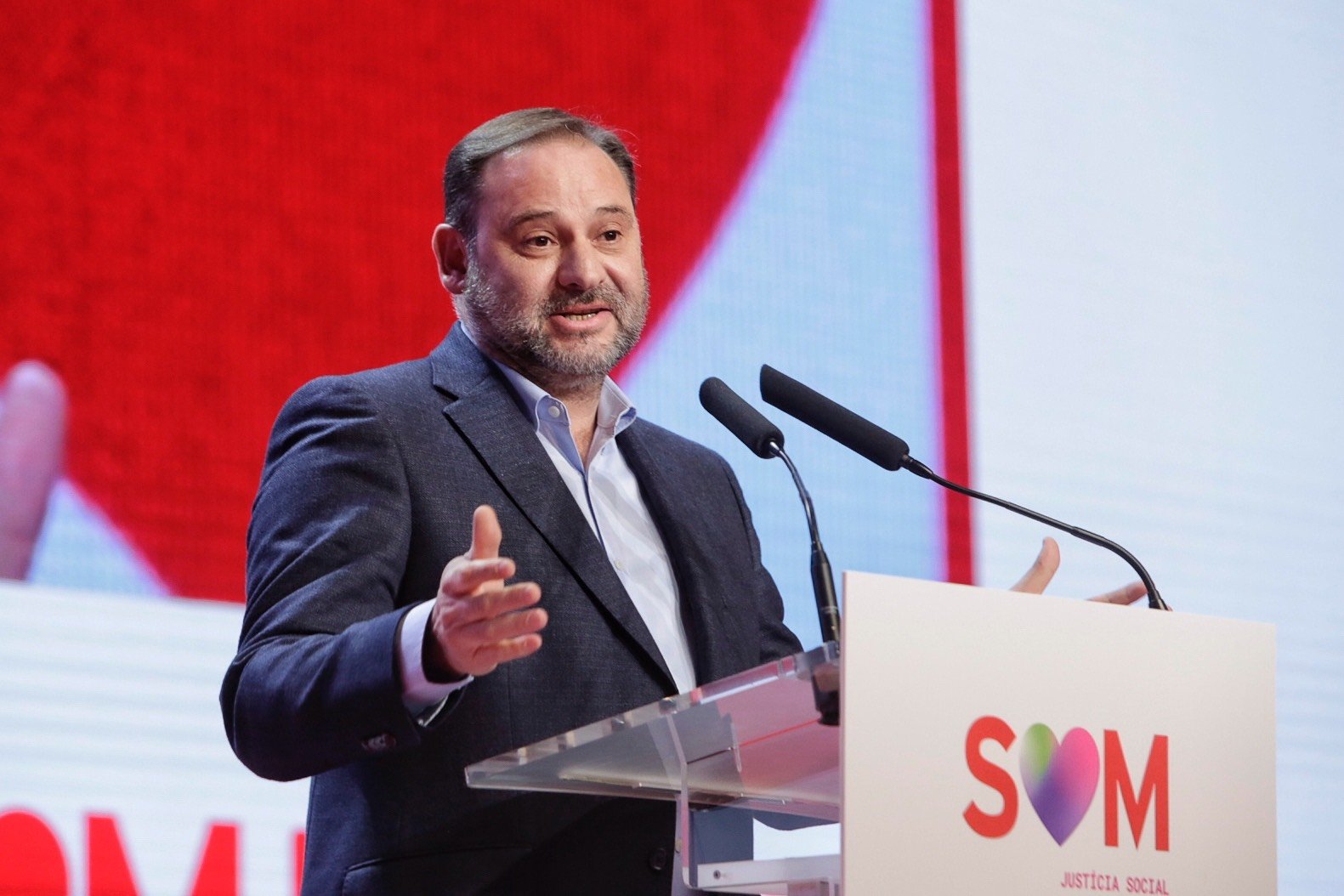Pro-independence party the Catalan Republican Left (ERC) was absent, after deciding not to take up the protocol invitation to attend the closing act of the party conference of their unionist political rivals the Catalan Socialists (PSC). But they were, nevertheless, the indirect and involuntary protagonists of the occasion. ERC were among the few parties who weren't present - PDeCAT, Comuns, Cs and PP were all there - but their decisive role in Pedro Sánchez's formation of a new Spanish government was hanging in the air above every speech made. Especially those of the Spanish Socialist (PSOE) leaders who had been invited and who, in the end also substituted Pedro Sánchez. The acting Spanish PM was scheduled to close the conference, but for schedule reasons he was unable to attend.
If on Saturday, it had been Spain's acting deputy prime minister Carmen Calvo who had given a dressing down to some of the regional "barons" of her own party who had criticised the opening of talks with ERC, today the PSOE figure in charge of delivering stern words was acting works minister José Luis Ábalos, one of the negotiators in the ERC discussions. And his reproaches were aimed at two separate political targets. The parties of the Spanish right, and ERC itself.
Addressing the Catalan party, Ábalos made it clear that if they didn't move faster in efforts to reach an agreement on the investiture of Pedro Sánchez as new prime minister, they might as well forget the option of setting out on a negotiated solution to the Catalan conflict. He called on ERC to "seize the opportunity to face the conflict" - a conflict whose nature he avoided defining in his speech: "Whether one of coexistence, or political, everyone can call it what they want, but it is a conflict."
Without directly naming them, Ábalos addressed the Republican Left party, warning that "if this opportunity is not taken up now, the thesis of dialogue will be broken." He said that there may not be "other opportunities". For this reason, he asked ERC to "make a courageous decision now, before it is frustrated or aborted". Because, he said, investing a new government "is the first step in tackling a dialogue process," but "without the investiture there is nothing."
And there was yet another warning, which may be interpreted as responding to the words of Catalan vice president Pere Aragonès in an interview today, in which he had called for the PSOE-ERC negotiating table to propose a solution for the imprisoned pro-independence leaders. Said Ábalos: "It is absurd to persist in making prior questions subject to conditions."
PP and Cs blamed for leaving Socialists in hands of ERC
On the other hand, the PSOE minister was also outspoken in his criticism of Spanish right-wing parties PPs and Cs, whom he accused of having "a complex about the far-right", saying that they should stop letting Vox have the initiative. Having made the criticism, he then gave it a double edge: "Without their participation in making Spain governable, we only have one option left," he said. The PP and Cs had adopted a "cynical and hypocritical" attitude, claimed Ábalos, because they complained that the PSOE had put itself in the hands "of those who want to break up Spain" but did not offer support for an alternative. For that reason he concluded that "this was an alibi to hide their lack of commitment to the country". Ábalos went even further: attributing the right's response to an attempt at "revenge" due to their failure to win November's election.
At this point, he reminded the parties of the right that in 2016 it was the PSOE who had agreed to hold its nose and abstain in the investiture of Mariano Rajoy's government, to avoid sending Spain into a third election. "If they want another solution - instead of having to depend on ERC - it's in their hands, it's very easy. We made a major sacrifice back then."
Borrell and "independence movement lies"
Another last minute absentee from the conference was Josep Borrell. The new head of European diplomacy was set down to deliver a speech but in the end could not arrive. However, the former Spanish foreign minister sent a video from the European Parliament in which he emphasized his international efforts to combat the Catalan pro-independence campaigning.
"Some of us have tried very hard to dispel falsehoods that the independence movement has been spreading for years, that it would all be flowers and violins and they would be welcomed in Europe with open arms," he said. And he called for these "falsehoods" to be "opposed more strongly". Borrell then continued with a familiar discourse: "Some want to try to divide us, but we work to unite, we don't make people choose between being Spanish or Catalan," he said.
Linguistic federalism
This highest-level PSC conference, held every three years in order to redefine the party's road map for the following three, has also been marked by the Socialists' controversial proposal to revise the Catalan language immersion model applied over the last forty years in the Catalan school system. The party ended up amending the nuance of its approach, but it retained the essence. The final text, adopted unanimously, defends the use of Catalan as the vehicular language - as at present - while underscoring the need for a more flexible model to incorporate more hours of Spanish where necessary and add greater presence of English.
The party's number two, Eva Granados, said "To those who call us linguistic colonizers and those who call us nationalists because we want to guarantee social harmony while being committed to Catalan, we say that Catalonia has two languages of communication and sentiment, and they won't shut us up." She concluded by adding, "We will fight against pensée unique and cultural homogeneity."

